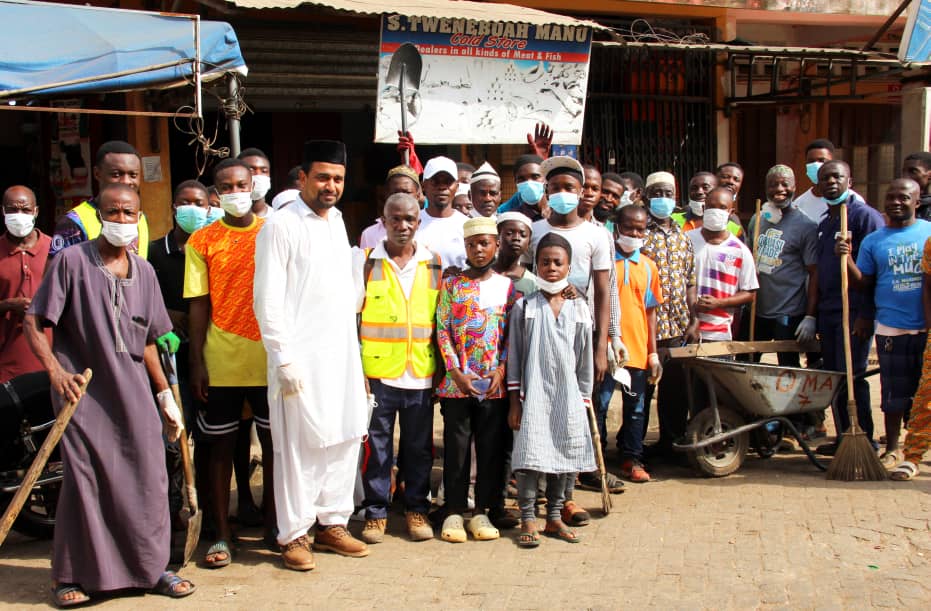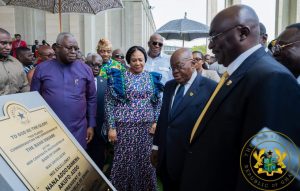
The Ga Mantse, Nii Tackie Teiko Tsuru II, in partnership with the Accra city authorities are entreating residents to participate in the various clean-up exercises to be organised to herald the Homowo festival. The Ga Mantse, leading the second phase of the Homowo clean-up campaign, last week Saturday, expressed optimism that Accra would rise and shine again.
But giving the amount of filth that was collected from Makola, CMB and other Central Business Districts of Accra, The Chronicle only hopes that the exercise will be consistent and regular.
Recent data by the Ghana Statistical Service (GSS) indicates that the population of the Greater Accra region had increased from 4 million in the year 2010 to 5.4 million in 2020. Thus, the region’s population has gone up by over a million people.
Interestingly, majority of the people live and work in the national capital, Accra. The Business District Centre of Accra receives approximately 4 million business commuters on daily basis.The challenge with this massive movement of people is that it is having severe impact on the environment, as people litter the streets with careless abandon.
Several governments have tried various methods to make Accra one of the cleanest on the African continent, but none of them, in our opinion, have been able to provide a lasting solution to the problem. The Chronicle can talk about the era of the Town Council, known in local parlance as “Saman Saman”, which was very popular in the 1960s and 1970s.
Under the Local Government, the Town Council workers always made sure that every area was clean and tidy. People who failed to keep their environment clean were summoned before sanitation courts, hence the name “Saman Saman”
The Chronicle can also recall that during the time of former President John Agyekum Kufuor, the then Chief Executive Officer of the Accra Metropolitan Assembly (AMA), Stanly Nii Adjiri Blackson, devoted the second Saturday of every month for clean-up exercise, dubbed “Health Day.” At the time, the Accra Metropolitan Assembly (AMA) was spending not less than GH¢30,000.00 every month to clean the filth in the Metropolis.
During these clean-up exercises, an order would be issued for complete closure of Bus terminals, shops and markets, to enable the youth and adults to join in the clean-up exercise.We can also reference Nii Adjiri Blankson’s promise to make Accra clean within 100 days of his tenure in office.
The clean-up exercise was taken to a different level under the National Sanitation Campaign, launched by the erstwhile Mahama government in 2014. First Saturday of every month was declared as National Sanitation Day. As a matter of fact, the then Minister for Local Government and Rural Development, Julius Debrah, put his job on the line in the event that he failed to address sanitation problems facing the country.
President Addo Dankwah Akufo-Addo’s government also followed the pattern by promising to make Accra the cleanest city in Africa. He, therefore, enlisted the support and co-operation of the people of Accra in making that dream a reality.
Unfortunately none of these interventions worked to perfection, apart from the ‘Saman-Saman’.
It is based on these historical antecedents that The Chronicle is wondering if the Ga Mantse’s ambition to make Accra clean can be achieved. But whilst entertaining this fear, we must also admit that most of the past campaigns were championed by politicians. We are, therefore, looking forward to see if the traditional authorities can this time collaborate with the local assemblies to come out with a different template.
Should they be able to sustain the exercise, it would go a long way to become a blue print for other traditional chiefs in other regions of Ghana to follow. We definitely have to find a solution to this canker.
The post Editorial: Homowo Clean-Up Exercise Should Be Sustained appeared first on The Ghanaian Chronicle.
Read Full Story










Facebook
Twitter
Pinterest
Instagram
Google+
YouTube
LinkedIn
RSS